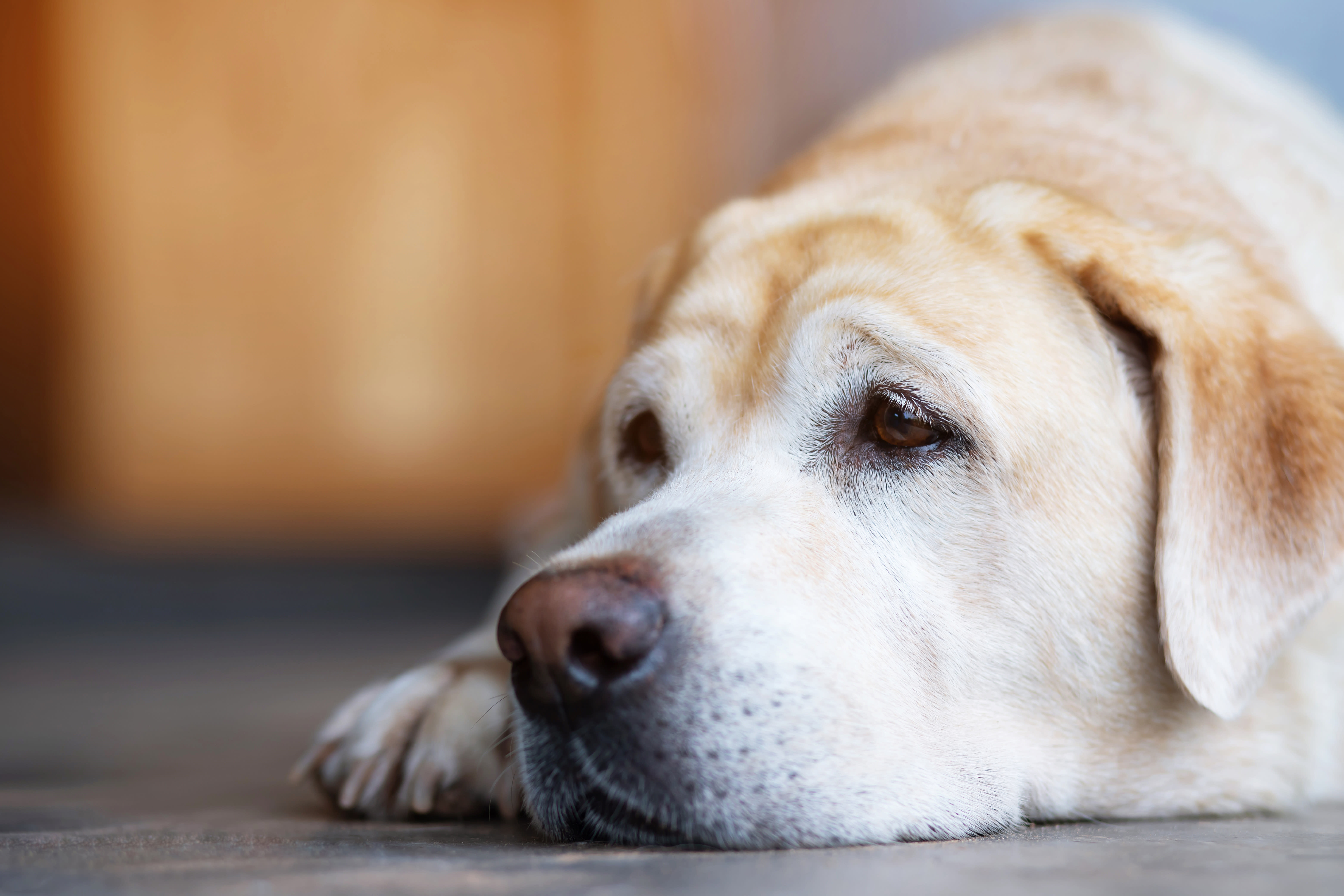What does a depressed or anxious dog do?
Your dog’s behavior might provide some clues that not all is well and lead you to ask, “Is my dog depressed?”.
If your dog shows three or more of the following signs, a vet’s visit is in order to identify whether they’re caused by depression, anxiety, or something else:
Depression
- Hiding or avoiding you
- Aggression, growling, or howling
- "Sad" facial expression
- Lack of appetite
- Not sleeping (or sleeping too much)
- No interest in playing with people or toys
Anxiety
- Paw licking
- Spontaneous elimination (bowel movement or urination)
- Panting or pacing
- Trembling, whining, or whimpering
- Destructive behaviors
Causes of Depression and Anxiety in Dogs
Because dogs are creatures of habit, any major life change or distressing event can have an impact on their emotions.
You might first think of the more obvious events such as an owner’s death or prolonged absence, but a move to a new home, injury or illness, change in routine, any traumatic event, or even a new roommate could be the cause of their malaise.
How to Cheer Up Your Dog
Depressed or anxious dogs often benefit from predictable environments, closely controlled social interaction (if the cause is related to other dogs or people) and a consistent routine with lots of physical activity. Here are some more tips on how to help your depressed or anxious dog:
Visit your vet
Your vet is an essential resource when it comes to all aspects of your dog’s health. Because some symptoms can have physical causes that need urgent medical attention, the first thing to do is to schedule a visit.
Although most dogs will recover from depression on their own (with a little extra love and attention from their human), your vet can provide medication such as antidepressants or anti-anxiety aids to calm their nerves if things don’t improve.
Keep your dog entertained and physically active
Bored pets can become anxious or get into mischief. Make sure your dog gets exercise before you leave for the day and that they have enough toys around to keep them busy. Many toys are interactive or can be stuffed with treats to keep dogs amused.
Spend time with friends
Dogs are natural social animals who love to be around people and other dogs. Consider getting a companion animal or taking lonely pets to the park, classes or doggie daycare for more interaction.
Show them love and patience
Both two-legged creatures and our four-legged friends need lots of love and patience - even more so when we feel depressed or anxious. Giving your dog some extra time and attention could help.
At Germantown Parkway Animal Hospital, we have tips, treatments, and medications to help your pooch get back to their cheerful selves.
Note: The advice provided in this post is intended for informational purposes and does not constitute medical advice regarding pets. For an accurate diagnosis of your pet's condition, please make an appointment with your vet.
Are you concerned that your dog may be depressed or anxious? Book an appointment today.
Looking for a vet in Cordova and greater Memphis area?
We're always accepting new patients, so contact our veterinary hospital today to book your pet's first appointment.
Related Articles View All
Cats & Colds: Can They Get Them & What To Do?
Many people don't know that our cats can get sick, but they can catch colds just like we can! A cat with a cold will display similar symptoms as humans do such as sneezing and a runny nose. Here, our Cordova vets talk about the causes of cat colds and when to seek veterinary care.
Do cats get depressed?
Cats are known for their independent yet playful characters. So, if your cat seems sad, you're bound to be concerned. Today, we discuss signs of depression in cats, potential causes of cat depression, and what can be done to help your feline friend banish the blues.
My cat sleeps constantly, should I be worried?
No doubt about it, cats love to sleep. But how much is too much? Today, you will discover reasons why cats sleep so much and learn when to be concerned about your cat's sleeping habits.
What To Do If Your Cat or Dog Having Difficulty Breathing
Does your cat or dog's panting mean that they're having breathing difficulties? Today, our Cordova vets look at breathing difficulties in dogs and cats, and how they are treated.

